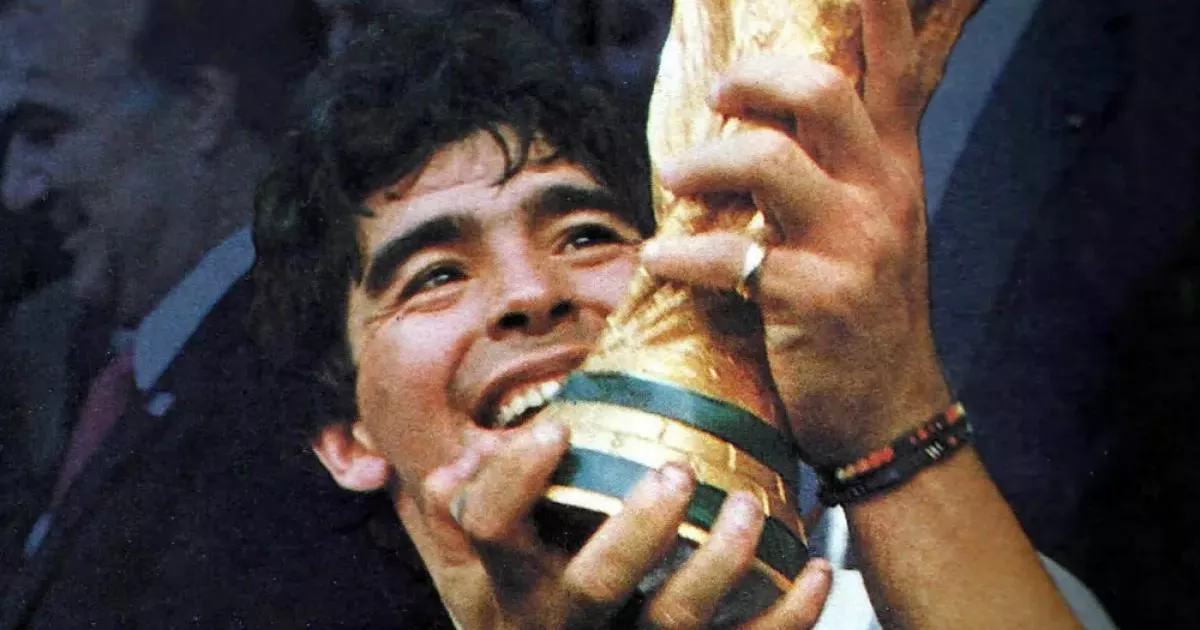Diego Maradona was an Argentine professional football player and manager, globally recognized as one of the greatest footballers of all time. He jointly won the FIFA Player of the 20th Century award with Pelé. A masterful playmaker with exceptional dribbling skills, Maradona led Argentina to victory in the 1986 FIFA World Cup. His career was marked by both moments of brilliance and controversy, including the infamous 'Hand of God' goal. Beyond his playing career, he also served as a football manager.
1927: Birth of Diego Maradona "Chitoro"
In 1927, Diego Maradona "Chitoro" (Maradona's father) was born.
1930: Birth of Dalma Salvadora Franco "Doña Tota"
In 1930, Dalma Salvadora Franco "Doña Tota" (Maradona's mother) was born.
1958: Comparison to Pelé
Maradona's performance in 1986 was compared to Pelé's in 1958.
October 1960: Birth of Diego Armando Maradona
On October 30, 1960, Diego Armando Maradona was born in Lanús, Buenos Aires Province, Argentina.
March 1969: Recommended to Los Cebollitas
In March 1969, Maradona was recommended to Los Cebollitas (The Little Onions), the junior team of Buenos Aires's Argentinos Juniors.
1973: Evita Tournament Win
In 1973, Maradona led Cebollitas to an Evita Tournament win.
1974: Evita Tournament Win
In 1974, Maradona led Cebollitas to an Evita Tournament win and 141 undefeated games in a row.
October 1976: Professional Debut for Argentinos Juniors
On October 20, 1976, Maradona made his professional debut for Argentinos Juniors against Talleres de Córdoba, becoming the youngest player in the history of the Argentine Primera División.
November 1976: First Professional Goal
On November 14, 1976, Maradona scored his first goal as a professional against San Lorenzo.
1976: Start of Argentinos Juniors Career
In 1976, Maradona started playing for Argentinos Juniors.
February 1977: Maradona's International Debut
On 27 February 1977, at age 16, Maradona made his full international debut against Hungary, just four months after his professional debut for Argentinos Juniors.
1977: Played 49 matches and scored 19 goals
In the 1977 season, Maradona played 49 matches and scored 19 goals, starting to gain attention from other South American clubs.
November 1978: Maradona Plays Friendly for Argentina U20
On 3 November 1978, shortly after turning 18, Maradona played for the U20 Argentina team in a friendly match against Franz Beckenbauer's New York Cosmos, scoring twice in a 2–1 win.
1978: Argentina XI vs World XI
In 1978, Maradona played and scored for an Argentina XI against the World XI, marking the first anniversary of Argentina's first World Cup win.
1978: Scored 26 goals and not selected to World Cup
In 1978, Maradona scored 26 goals in 35 matches, but was not selected for the 1978 World Cup squad.
June 1979: Maradona Scores First Senior International Goal
On 2 June 1979, Maradona scored his first senior international goal in a 3–1 win against Scotland at Hampden Park.
1979: Top Scorer in both Metropolitan and Nacional tournaments
In 1979, Maradona scored 26 goals in 26 games, and finished top scorer in both Metropolitan and Nacional tournaments.
1980: Assist against Switzerland
In 1980, Maradona made an assist for Ramón Díaz's header against Switzerland with the rabona.
1980: Top Scorer for the Last Four Consecutive Tournaments
In 1980, Maradona scored 43 goals in 45 appearances and was the top scorer again for the last four consecutive tournaments.
February 1981: Transfer to Boca Juniors
In February 1981, Maradona transferred to Boca Juniors for US$4 million.
March 1981: Meeting with Queen
In March 1981, the band Queen were introduced to Diego Maradona backstage during their concert at the Vélez Sarsfield Stadium.
1982: Transferred to Barcelona
After the 1982 World Cup, Maradona was transferred to Barcelona for a then world record fee of £5 million ($7.6 million).
1982: Endorsements and Sports Star Status
By 1982, Diego Maradona had risen to become one of the world's biggest sports stars. He secured endorsements with numerous companies, including Puma and Coca-Cola, earning an additional $1.5 million per year in addition to his club salary.
1982: Maradona's First World Cup Tournament
In 1982, Maradona played his first World Cup tournament in Spain. Argentina, the defending champions, lost to Belgium in the opening game, and internal tensions affected the team's performance. They were eventually defeated by Brazil and Italy in the second round.
1982: Comparison to Paolo Rossi
Maradona's performance in 1986 was compared to Paolo Rossi's in 1982.
June 1983: Applauded by Real Madrid Fans
On June 26, 1983, Maradona scored in the Copa de la Liga final against Real Madrid and became the first Barcelona player to be applauded by Real Madrid fans at Estadio Santiago Bernabeu.
September 1983: Broken Ankle
In September 1983, Maradona suffered a broken ankle in a La Liga game caused by a tackle by Athletic Bilbao's Andoni Goikoetxea.
1983: Napoli facing relegation
At the end of the 1983–84 Serie A season, prior to Maradona's arrival, Napoli was facing relegation.
July 1984: Arrival in Naples
On July 5, 1984, Maradona arrived in Naples and was presented as a Napoli player to 75,000 fans at Stadio San Paolo.
1984: Playing for Napoli and Sponsorships
In 1984, Diego Maradona earned $7 million a year playing at Napoli, with sponsorships including $5 million from Hitachi. That year, he was also named the best known person in the world by IMG.
1984: Transfer to Napoli
In 1984, Maradona set another world record transfer fee when he moved to Napoli for £6.9 million.
1984: Violent Fight during Copa del Rey Final
In 1984, Maradona was involved in a violent fight during the Copa del Rey Final against Athletic Bilbao after being provoked and receiving hard tackles.
1986: Led Argentina to the 1986 World Cup victory
In 1986, Diego Maradona led Argentina to victory in the World Cup, particularly standing out in the quarter-final against England. His performance and two goals lifted the spirits of the nation. Guillem Balagué notes that Maradona's actions transformed him from a star player into a legend.
1986: Napoli Wins First Serie A Championship
In 1986, Led by Maradona, Napoli secured their first-ever Serie A Championship, marking a significant career milestone for the team and Maradona.
1986: 'Hand of God' Goal
In 1986, Maradona scored the infamous "Hand of God" goal against England at the World Cup.
1986: Maradona Wins Golden Ball at World Cup
In 1986, Maradona won the Golden Ball as the best player of the World Cup and was widely regarded to have single-handedly won the tournament for Argentina.
1986: First goal against Belgium
In the 1986 World Cup semi-final, Maradona scored his first goal against Belgium, showcasing his left-footed dominance.
1986: Maradona's Performance at the 1986 World Cup
Maradona's performance at the 1986 World Cup in Mexico, widely regarded as the greatest individual performance in tournament history, where he single-handedly delivered his country its second World Cup.
1986: The Americas vs the World
Shortly after the 1986 triumph, Maradona scored for The Americas against the World in a UNICEF fundraiser.
1986: Maradona Appears for Tottenham Hotspur
Shortly before the 1986 World Cup, Maradona appeared for Tottenham Hotspur in a testimonial match for Osvaldo Ardiles against Internazionale.
1986: Maradona's Recognition and Legendary Status
Since 1986, Diego Maradona's name has been a token of recognition for Argentines abroad. He is often talked about in terms reserved for legends. He is referenced in the Argentine film 'El hijo de la novia', and is the subject of the film 'El camino de San Diego'.
May 1987: Napoli Celebrates Serie A Championship
In May 1987, Napoli's victory in the Serie A Championship sparked widespread celebrations, including street parties, mock funerals for rival teams Juventus and Milan, and the painting of murals of Maradona throughout the city.
1987: Ma-Gi-Ca Front-Line Formed
In 1987, Maradona, Bruno Giordano, and Careca formed a prolific attacking trio for Napoli, later dubbed the "Ma-Gi-Ca" front-line.
1987: Clash with Pope John Paul II
In 1987, during a meeting with Pope John Paul II at the Vatican, Maradona clashed with him over wealth disparity, criticizing the Church's wealth in contrast to its concern for poor children.
1988: Maradona Serie A Top Scorer
In the 1987–88 season, Maradona was the Serie A top scorer with 15 goals.
November 1989: Marriage to Claudia Villafañe
In November 1989, on 7 November, Maradona married his long-time fiancée Claudia Villafañe in Buenos Aires.
1989: Napoli Runner-Up in Coppa Italia
In the 1988–89 season, Napoli finished as runner-up in the Coppa Italia, losing to Sampdoria in the final.
1990: Napoli Wins Second League Title
In 1989–90, Napoli secured their second league title, and later in 1990, won the Italian Supercup by defeating Juventus 5–1.
1990: Personal Problems and Backlash in Italy
In 1990, Maradona faced increasing personal problems in Italy, including continued cocaine use, fines, a scandal regarding an illegitimate son, suspicion over alleged ties with the Camorra crime syndicate, and backlash from fans after Argentina beat Italy in the World Cup semi-final.
1990: Diamond Konex Award
In 1990, the Konex Foundation from Argentina granted him the Diamond Konex Award, one of the most prestigious culture awards in Argentina, as the most important personality in sports in the last decade in his country.
1990: 1990 World Cup Final
In the 1990 World Cup in Italy, Maradona captained Argentina to the World Cup final, though an ankle injury hampered his performance. Argentina lost their opening game and barely qualified from their group. In the round of 16 against Brazil, Argentina won with a goal set up by Maradona.
1990: Assist against Brazil
In the 1990 World Cup second-round tie against Brazil, Maradona used his right foot to set up the winning goal for Claudio Caniggia.
1990: Hand on the goal line
In the 1990 World Cup, Maradona used his hand on his own goal line, again without punishment, to prevent the Soviet Union from scoring.
1991: Banned from football for drug abuse
In 1991, Maradona was banned from football for abusing drugs.
1992: Maradona Leaves Napoli for Sevilla
In 1992, after a 15-month ban for a drug test failure, Maradona left Napoli in disgrace and signed for Sevilla.
February 1993: Return to Argentina National Team
On 24 February 1993, Maradona returned to the Argentina national team for the 1993 Artemio Franchi Cup against Denmark in Mar del Plata. Argentina won 5–4 in a penalty shoot-out after a 1–1 draw.
1993: Maradona Plays for Newell's Old Boys
In 1993, Maradona played for Newell's Old Boys.
1994: Manager of Mandiyú of Corrientes
In 1994, Maradona began his managerial career alongside Carlos Fren, leading Mandiyú of Corrientes.
1994: Banned from football for drug abuse
In 1994, Maradona was banned from football for abusing drugs.
1994: Expulsion from USA '94
In 1994, Maradona was expelled from the USA '94 World Cup after failing a drug test for ephedrine. He claimed it was due to the U.S. version of the energy drink Rip Fuel containing the chemical, unlike the Argentine version. Argentina was later eliminated in the round of 16. This marked the end of his international career.
1994: 1994 World Cup
In the 1994 World Cup in the United States, Maradona played in two games, scoring one goal against Greece at the Foxboro Stadium near Boston. After failing a drug test for ephedrine doping, he was sent home. His goal celebration against Greece was notable, marking his last international goal for Argentina.
1995: Manager of Racing Club
In 1995, Maradona and Carlos Fren led Racing Club, with little success.
1995: Maradona Returns to Boca Juniors
In 1995, Maradona returned to Boca Juniors for a two-year stint.
April 1996: Exhibition boxing match for charity
In April 1996, Maradona participated in a three-round exhibition boxing match with Santos Laciar for charity.
1996: Maradona Plays for Toronto Italia
In 1996, Maradona played in a friendly match alongside his brother Raul for Toronto Italia against the Canadian National Soccer League All-Stars.
1999: World Soccer's "100 Greatest Players of the 20th Century"
In 1999, Maradona was placed second behind Pelé by World Soccer in the magazine's list of the "100 Greatest Players of the 20th Century".
2000: Maradona Captains Bayern Munich in Farewell Game
In 2000, Maradona captained Bayern Munich in a friendly against the German national team in the farewell game of Lothar Matthäus.
2000: Publication of autobiography
In 2000, Maradona published his autobiography "Yo Soy El Diego" ("I am The Diego"), which became a bestseller in Argentina.
2000: FIFA Player of the Century
In 2000, Maradona was one of the two joint winners of the "FIFA Player of the Century" award, along with Pelé.
2000: Napoli Retires Number 10 Jersey
In 2000, Napoli officially retired the number 10 jersey.
November 2001: Maradona's Testimonial Match
On 10 November 2001, Maradona was given a testimonial match between an all-star World XI and the Argentina national team, where he scored two penalty kicks in a 6–3 win at La Bombonera.
2002: The Guardian on Maradona's Second Goal Against England
In 2002, Russell Thomas of The Guardian described Maradona's second goal against England in the 1986 World Cup quarter-finals as "arguably the greatest individual goal ever."
May 2003: First meeting with Diego Sinagra
In May 2003, Diego Junior met Maradona for the first time after tricking his way onto a golf course in Italy.
December 2003: Stadium named after Maradona
On 26 December 2003, Argentinos Juniors named its stadium after Maradona.
2004: Divorce from Claudia Villafañe
In 2004, Maradona and Claudia Villafañe divorced.
2004: Protest Against the Iraq War
In 2004, Maradona participated in a protest against the U.S.-led war in Iraq, expressing his opposition to imperialism.
2004: End of Cocaine addiction
Maradona was addicted to cocaine from the mid-1980s until 2004.
March 2005: Gastric Bypass Surgery
In March 2005, Maradona underwent gastric bypass surgery in Cartagena, Colombia to combat obesity after struggling with weight gain since the end of his playing career. The surgery involved a liquid diet for three months to help him return to a normal weight, after which he displayed a much thinner physique.
June 2005: Travels with Villafañe to Naples
In June 2005, Maradona and Villafañe, despite being divorced, travelled together to Naples for a series of homages.
June 2005: Return to Boca Juniors as vice-president
On 22 June 2005, Maradona returned to Boca Juniors as a sports vice-president, managing the First Division roster.
August 2005: Contract began
On 1 August 2005, Maradona's contract with Boca Juniors began.
August 2005: Debut as host of 'La Noche del 10'
On 15 August 2005, Maradona debuted as the host of 'La Noche del 10' on Argentine television, with Pelé as his first guest.
August 2005: Maradona Acknowledges "Hand of God" Goal
On 22 August 2005, Maradona acknowledged on his television show that he intentionally hit the ball with his hand for the "Hand of God" goal against England in the 1986 World Cup, admitting it was illegitimate.
November 2005: Rejection of offer to work with Argentina's national team
In November 2005, Maradona declined an offer to work with Argentina's national football team.
November 2005: Ronaldinho Applauded at Santiago Bernabéu
In November 2005, Ronaldinho was applauded by Madrid fans at the Santiago Bernabéu.
2005: Protest at Summit of the Americas
During the 2005 Summit of the Americas in Mar del Plata, Argentina, Maradona protested George W. Bush's presence, wearing a T-shirt labelled "STOP BUSH" (with the "s" in "Bush" being replaced with a swastika) and calling Bush "human garbage."
2005: Meeting with Hugo Chávez
In 2005, Maradona traveled to Venezuela to meet President Hugo Chávez, expressing his support and admiration for the leader, referring to Chávez as "a gigantic man" and proclaiming himself a "Chavista."
2005: Paolo Maldini's View
In 2005, Paolo Maldini described Maradona both as the greatest player he ever faced, and also as the most honest, stating: "He was a model of good behaviour on the pitch".
2005: Messi Wins Golden Ball at FIFA U-20 World Cup
Lionel Messi won the Golden Ball at the 2005 FIFA U-20 World Cup.
May 2006: Participation in UK's Soccer Aid
In May 2006, Maradona agreed to participate in UK's Soccer Aid, a program to raise money for UNICEF.
August 2006: Quitting position in Boca Juniors
On 26 August 2006, Maradona quit his position in Boca Juniors due to disagreements with the AFA.
2006: Boca won Clausura
In 2006, Boca won the Clausura with Maradona fostering a close relationship with the players.
2006: Seen with Villafañe during World Cup
In 2006, Maradona and Villafañe were seen together on other occasions, including the Argentina games during the World Cup.
2006: Guaraná Antarctica Commercial Controversy
In 2006, a television commercial for Brazilian soft drink Guaraná Antarctica portrayed Diego Maradona as a member of the Brazil national team. This generated controversy in the Argentine media. Maradona responded by stating he had no issue wearing the Brazilian jersey, but would refuse to wear a River Plate shirt.
March 2007: Hospital Readmission for Hepatitis and Alcohol Abuse
On March 29, 2007, Maradona was readmitted to a hospital in Buenos Aires to receive treatment for hepatitis and the effects of alcohol abuse.
August 2007: Anti-U.S. Sentiment on Aló Presidente
In August 2007, Maradona appeared on Chávez's television show Aló Presidente and stated, "I hate everything that comes from the United States. I hate it with all my strength."
December 2007: Presentation of Signed Shirt to Iran
In December 2007, Maradona presented a signed shirt with a message of support to the people of Iran, which is displayed in the Iranian Ministry of Foreign Affairs' museum.
2007: Guest of Honour at Copa América
In 2007, Maradona was Chávez's guest of honour at the opening game of the Copa América, held in Venezuela.
October 2008: Head coach of the national team
On 29 October 2008, AFA chairman Julio Grondona confirmed that Maradona would be the head coach of the national team.
November 2008: Appointed as Argentina National Team Coach
In November 2008, Maradona became the coach of Argentina's national football team.
December 2008: Admiration for Barack Obama
By December 2008, Maradona adopted a more positive U.S. attitude and expressed admiration for then-President-elect Barack Obama.
2008: Corrado Ferlaino on Maradona's leadership
In 2008, Napoli's former president Corrado Ferlaino commented on Maradona's leadership qualities during his time with the club, describing him as "a coach on the pitch."
2008: "Maradona" documentary released
In 2008, Serbian filmmaker Emir Kusturica made "Maradona", a documentary about Maradona's life.
March 2009: Tax Debt to Italy
In March 2009, Italian officials announced that Maradona still owed the Italian government €37 million in local taxes, including accrued interest, having paid only €42,000, two luxury watches, and a set of earrings.
2009: CBC Sports on Maradona's Goal Against England
In 2009, John Molinaro of CBC Sports described Maradona's goal against England as "the greatest ever scored in the tournament – and, maybe, in soccer."
January 2010: FIFA ban expired
In January 2010, Maradona's two-month ban on all footballing activity, which was imposed by FIFA, expired on 15 January.
March 2010: Greatest World Cup Players of All Time
On 22 March 2010, Maradona was chosen number 1 in 'The Greatest 10 World Cup Players of All Time' by The Times.
2010: Louis Vuitton Commercial and Waka Waka Video
In 2010, Diego Maradona appeared in a commercial for Louis Vuitton, playing table football with Pelé and Zinedine Zidane. Footage of him was also shown in the music video for the 2010 World Cup song "Waka Waka" by Shakira.
2010: Coached Argentina in the 2010 World Cup
In 2010, Maradona was in charge of the Argentina national team at the World Cup in South Africa, before leaving at the end of the tournament.
2010: Argentina in the 2010 FIFA World Cup
In 2010, at the FIFA World Cup, Argentina started by winning 1–0 against Nigeria and then 4–1 victory over South Korea and won 2-0 against Greece to win the group and advance to a second round, meeting Mexico. After defeating Mexico 3–1, Argentina was defeated by Germany 4–0 in the quarter-finals to go out of the competition.
2010: Arrigo Sacchi's Interview
In a 2010 interview with Il Corriere dello Sport, former Milan manager Arrigo Sacchi praised Maradona for his defensive work-rate off the ball.
May 2011: Manager of Al Wasl FC
In May 2011, Maradona became the manager of Dubai club Al Wasl FC in the United Arab Emirates.
November 2011: Death of Maradona's mother
On 19 November 2011, Maradona's mother, Dalma, died. Maradona was in Dubai at the time.
2011: Death of Dalma Salvadora Franco "Doña Tota"
In 2011, Dalma Salvadora Franco "Doña Tota" (Maradona's mother) passed away.
2011: Maradona Suggests Lavezzi Use Number 10
In 2011, Maradona suggested that Ezequiel Lavezzi should use the retired number 10 jersey of Napoli, although the change ultimately did not occur due to fan opposition.
2011: Coached Al Wasl
In the 2011–12 season, Maradona coached Dubai-based club Al Wasl in the UAE Pro-League.
July 2012: Sacked from Al Wasl FC
On 10 July 2012, Maradona was sacked as manager of Dubai club Al Wasl FC.
April 2013: Visit to Hugo Chávez's Tomb
In April 2013, Maradona visited the tomb of Hugo Chávez and encouraged Venezuelans to elect Nicolás Maduro to continue Chávez's legacy.
August 2013: 'Spiritual coach' at Deportivo Riestra
In August 2013, Maradona became 'spiritual coach' at Argentine club Deportivo Riestra.
September 2014: Meeting with Pope Francis
In September 2014, Maradona met with Pope Francis in Rome, stating that Francis inspired him to return to religion and emphasizing the importance of helping others.
September 2014: Participation in "Match for Peace"
On 1 September 2014, Maradona participated in the "Match for Peace" at the Stadio Olimpico in Rome, donating the proceeds to charity.
2014: Accusation of assaulting girlfriend
In 2014, Maradona was accused of assaulting his girlfriend, Rocío Oliva, which he denied.
2014: Roger Bennett on Maradona's 1986 World Cup Performance
In 2014, Roger Bennett of ESPN FC described Maradona's performance at the 1986 World Cup in Mexico as "the most virtuoso performance a World Cup has ever witnessed."
2014: Condemnation of Israel's Actions in Gaza
In 2014, during the Israel–Gaza conflict, Maradona condemned Israel's military strikes in the Gaza Strip, calling the actions against Palestinians "shameful".
2014: FIFA Poll
In a 2014 FIFA poll, Maradona was voted the second-greatest number 10 of all time, behind only Pelé.
2014: Messi Wins Golden Ball at FIFA World Cup
Lionel Messi won the Golden Ball at the 2014 FIFA World Cup.
June 2015: Death of Maradona's father
On 25 June 2015, Maradona's father, "Don" Diego, died at age 87.
October 2015: Acceptance of Role in Football for Unity
In October 2015, Maradona thanked Queen Elizabeth II and the Houses of Parliament in London for the opportunity to provide "true justice" as the Latin American director for the non-governmental organization Football for Unity.
November 2015: Andrés Iniesta Applauded at Santiago Bernabéu
In November 2015, Andrés Iniesta was applauded by Madrid fans at the Santiago Bernabéu.
2015: Death of Diego Maradona "Chitoro"
In 2015, Diego Maradona "Chitoro" (Maradona's father) passed away.
2017: Featured in FIFA 18
In 2017, Diego Maradona was featured as a legendary player in the football video game FIFA 18.
2017: FourFourTwo's Rank
In 2017, FourFourTwo ranked him in first place in their list of "100 greatest players".
2017: Coached Fujairah
In 2017, Maradona became the coach of Fujairah before leaving at the end of the season.
2017: Criticism of Donald Trump
In 2017, Maradona criticized President Donald Trump, calling him "a cartoon character".
2017: Hamšík Breaks Maradona's Napoli Goalscoring Record
In 2017, Marek Hamšík broke Maradona's record of 115 goals to become Napoli's all-time leading goalscorer.
2017: Praise for Vladimir Putin
In a 2017 interview, Maradona praised Russian president Vladimir Putin and considered him, along with Chavez and Castro, to be among the best political leaders in the world.
May 2018: Chairman of Dynamo Brest
In May 2018, Maradona was announced as the new chairman of Belarusian club Dynamo Brest.
September 2018: Chairman of Dynamo Brest / Coach of Dorados
From May to September 2018, Maradona was the chairman of Dynamo Brest. From September 2018, Maradona became the coach of Mexican club Dorados.
September 2018: Manager of Dorados
In September 2018, Maradona was appointed manager of Mexican second division side Dorados.
December 2018: Split up with Rocio Oliva
In December 2018, Maradona and Rocío Oliva split up.
2018: Featured in Pro Evolution Soccer 2018
In 2018, Diego Maradona was featured as a legendary player in the football video game Pro Evolution Soccer 2018.
2018: FourFourTwo's Rank
In 2018, FourFourTwo ranked him in first place by the same magazine in their list of the "Greatest Football Players in World Cup History".
2018: Giuseppe Bergomi's View
In 2018, Giuseppe Bergomi described Maradona as the greatest player of all time.
2018: Participation in Venezuelan Election Rally
In 2018, Maradona participated and danced at the electoral campaign rally during the presidential elections in Venezuela.
2018: Sportsnet on Maradona's Performance
In 2018, Sportsnet noted that no other player had dominated a single competition the way Maradona did in Mexico in 1986.
January 2019: Surgery for Internal Bleeding
In January 2019, Maradona underwent surgery due to a hernia that caused internal bleeding in his stomach.
June 2019: End of Dorados Coaching
In June 2019, Maradona's tenure as coach of Mexican club Dorados came to an end.
June 2019: Stepping down from Dorados
On 13 June 2019, Maradona's lawyer announced that he would be stepping down from his role as manager of Dorados, citing health reasons.
September 2019: Coach of Gimnasia de La Plata
In September 2019, Maradona became the coach of Argentine Primera División club Gimnasia de La Plata.
2019: Fine for Supporting Nicolás Maduro
In 2019, during the Venezuelan presidential crisis, the Mexican Football Federation fined Maradona for violating their code of ethics by dedicating a team victory to Nicolás Maduro.
2019: Release of 'Diego Maradona' Documentary
In 2019, the documentary film 'Diego Maradona', directed by Asif Kapadia, was released. Kapadia described it as part of a trilogy about child geniuses and fame, highlighting Maradona's brilliance, drama, and his fight against the system.
2019: Diego Maradona documentary
In the 2019 documentary film Diego Maradona, Maradona confessed that his weekly regime consisted of "playing a game on Sunday, going out until Wednesday, then hitting the gym on Thursday."
March 2020: 90min.com's Rank
In March 2020, Maradona was ranked first by Jack Gallagher of 90min.com in their list of "Top 50 Greatest Players of All Time".
May 2020: Sky Sports Rank
In May 2020, Sky Sports ranked Maradona as the best player never to have won the UEFA Champions League/European Cup.
June 2020: Gimnasia renewed Maradona's contract
On 3 June 2020, despite having a bad record during the 2019–20 season, Gimnasia renewed Maradona's contract for the 2020–21 season.
November 2020: Death of Diego Armando Maradona
In November 2020, Diego Armando Maradona passed away.
November 2020: Death of Maradona
In November 2020, Maradona died in post. His coaching staff resigned from the club following his death.
November 2020: Hospitalization and Brain Surgery
In November 2020, Maradona was admitted to a hospital in La Plata, initially supposedly for psychological reasons, and underwent emergency brain surgery to treat a subdural hematoma. He was later released and supervised as an outpatient. On November 25, 2020, at the age of 60, Maradona suffered cardiac arrest and died at his home.
November 2020: Tributes and Renaming of Competitions in Maradona's Honor
In November 2020, following Maradona's death, numerous tributes were made. The Aditya School of Sports in Kolkata named their cricket stadium after him. The AFA renamed the 2020 Copa de la Liga Profesional as Copa Diego Armando Maradona. The Pakistan Football Federation honored Maradona at the PFF National Challenge Cup, and the New Zealand rugby team presented a jersey with Maradona's name before a match against Argentina. Lionel Messi dedicated a goal to Maradona by revealing a Newell's Old Boys shirt.
December 2020: Stadio San Paolo Renamed in Maradona's Honor
In December 2020, the Stadio San Paolo in Naples was officially renamed Stadio Diego Armando Maradona. Numerous fans gathered outside to pay tribute.
December 2020: Napoli Stadium Renamed in Honor of Maradona
On 4 December 2020, nine days after Maradona's death, Napoli's home stadium was renamed Stadio Diego Armando Maradona to honor him.
2020: Death
In 2020, Diego Maradona died while still coaching Gimnasia de La Plata.
2020: Asif Kapadia's comment
In 2020, the film's director, Asif Kapadia, commented on Maradona's inconsistent training regimen.
May 2021: Medical Professionals Charged with Homicide
In May 2021, seven medical professionals were charged with homicide over Maradona's death and could face between eight and 25 years in prison if convicted.
June 2022: Medical Personnel to Face Trial
In June 2022, a judge ruled that eight medical personnel should face trial for criminal negligence and homicide in regards to Maradona's death.
June 2022: Medical Personnel to Face Trial for Homicide
In June 2022, a judge ruled that eight medical personnel should face trial for criminal negligence and homicide in regards to Maradona's death.
2022: Ranked Third Best Football Player
In 2022, Maradona was ranked as the third best football player of all time by football magazine FourFourTwo.
2022: Messi Wins Golden Ball at FIFA World Cup
Lionel Messi won the Golden Ball at the 2022 FIFA World Cup.
April 2023: Appeal Court Upholds Ruling for Trial
On April 18, 2023, the Court of Appeals and Guarantees of San Isidro upheld the June 2022 ruling where eight medical personnel, including physician Luque and psychiatrist Cosachov, should face trial on the charge of "simple homicide with malice aforethought".
January 2024: Posthumous Clearance of Tax Accusations
In January 2024, Maradona was posthumously cleared of the accusations of tax debt by the Supreme Court of Cassation.
September 2024: Trial Date Set for Medical Personnel
In September 2024, a criminal court in San Isidro set the trial date for Luque, Cosachov, and other medical personnel to start on 11 March 2025, in connection with Maradona's death.
March 2025: Trial Date Set for Medical Personnel
The trial date for medical personnel charged in connection with Maradona's death is set to begin on 11 March 2025, in a criminal court in San Isidro.
Mentioned in this timeline

Donald John Trump is an American politician media personality and...
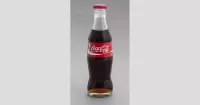
Coca-Cola is a globally recognized cola soft drink produced by...

Vladimir Vladimirovich Putin is a Russian politician and former intelligence...
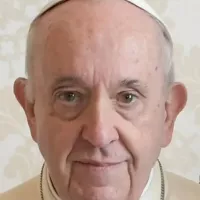
Pope Francis served as the head of the Catholic Church...
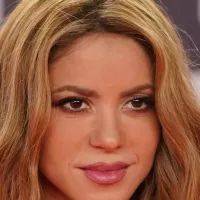
Shakira Isabel Mebarak Ripoll a Colombian singer-songwriter and dancer is...

Barack Obama the th U S President - was the...
Trending
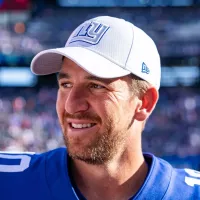
10 months ago Caitlin Clark, Serena Williams at NFL Meeting; Flag Football for LA28.
8 months ago Queens 10K Returns: Race, Festival, Kids Run & Community Engagement in 2025
4 months ago John Deere appointments, Origin Agritech restructure, and crowds at YP Field Days in September 2025.
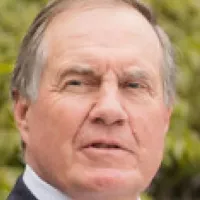
2 months ago Belichick Eyes Wake Forest Amidst Giants Job Rumors: McDaniels Also in the Mix?
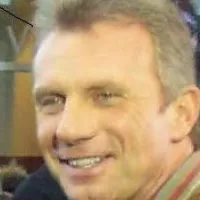
Joe Montana nicknamed Joe Cool and The Comeback Kid is a Hall of Fame quarterback who played seasons in the...
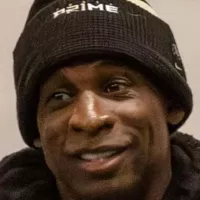
7 months ago Deion Sanders excited to rejoin Colorado, praises Joey McGuire, addresses health concerns.
Popular

Thomas Douglas Homan is an American law enforcement officer who...

William Franklin Graham III commonly known as Franklin Graham is...

XXXTentacion born Jahseh Dwayne Ricardo Onfroy was a controversial yet...

Jupiter is the fifth and largest planet from the Sun...

Instagram is a photo and video-sharing social networking service owned...

KFC or Kentucky Fried Chicken is an American fast-food chain...
